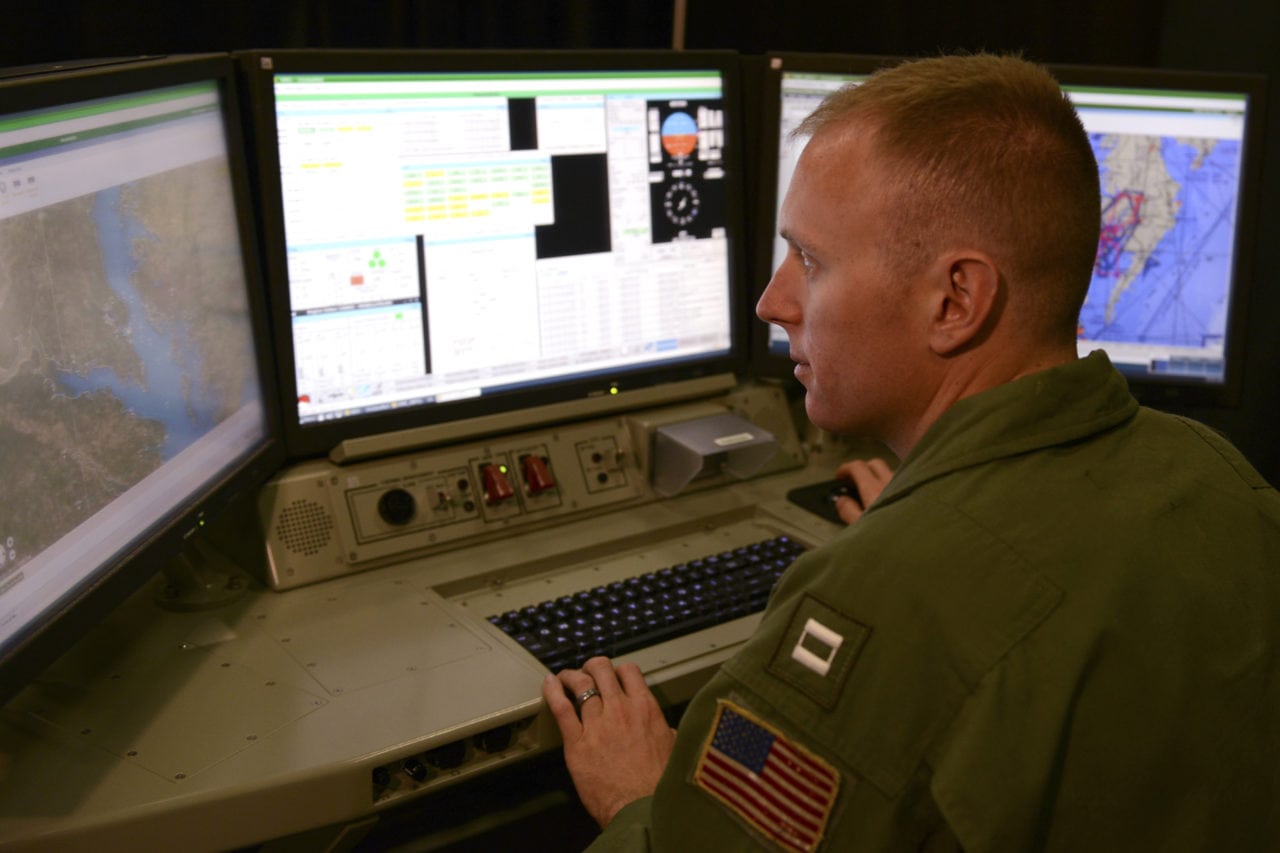 |
| Navy flight test pilot demonstrates functionality of new software for the future UClass system at the program’s Naval Air Station Patuxent River, Md. lab. Photo: US Navy |
[Avionics Today 09-15-2014] Naval Air Systems Command (NAVAIR) engineers recently installed new software for the Navy’s Unmanned Carrier-Launched Airborne Surveillance and Strike (UCLASS) system’s control station at the program’s Naval Air Station Patuxent River lab in Maryland.
In early September, the UCLASS team integrated the latest iteration of Common Control System (CCS) software into the next-generation unmanned effort, laying the groundwork for potential use across airborne, land and subsurface domains.
“One of the premises that started CCS was not rebuilding the software that we needed for every [Unmanned Aircraft System] UAS every time,” said Jeff Davis, CCS team lead for the Navy’s UCLASS, in a statement released by NAVAIR. “We focused on using existing products that we have within the Navy inventory to provide that first baseline going forward for the next UAS, in this case UCLASS.”
This new software version is the first to provide an unmanned command and control capability using the latest Navy Interoperability Profile (NIOP) standards, which allow control systems to talk to and share data with multiple air vehicles, Davis said. His team leveraged support from other unmanned programs, specifically Triton and Fire Scout, to build baseline software for UCLASS. They are currently testing this software with an air vehicle simulator based on Triton. An early operational capability is anticipated in the 2020-2021 timeframe although the Pentagon’s Request for Proposals (RFP) for the four main manufacturers — Lockheed Martin, Northrop Grumman, Boeing and General Atomics — has been delayed as the Pentagon reviews its Intelligence, Surveillance and Reconnaissance (ISR) budget this fall.